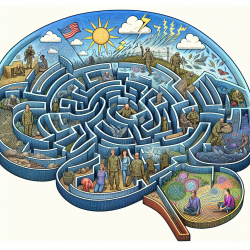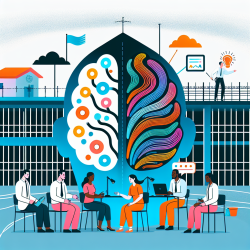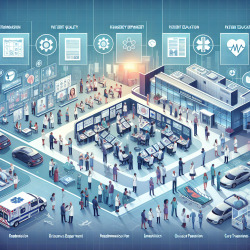Introduction
The integration of Artificial Intelligence (AI) into healthcare is revolutionizing the landscape of patient care and healthcare delivery. A recent systematic review titled A Systematic Review of the Application of Artificial Intelligence in Nursing Care: Where are We, and What’s Next? provides valuable insights into the multifaceted applications of AI in nursing care. This blog explores how practitioners can enhance their skills by implementing these findings or conducting further research.
Key Themes in AI Application in Nursing Care
The review identified six key themes in the application of AI in nursing care:
- Risk Identification: AI aids in identifying patients at high risk for readmissions, enabling targeted interventions that enhance patient outcomes and reduce healthcare costs.
- Health Assessment: AI tools, such as deep learning algorithms, assist nurse practitioners in improving diagnostic accuracy, particularly in dermatologic assessments.
- Patient Classification: Machine learning models help classify patients based on disease severity, optimizing resource allocation and care management in intensive care units.
- Research Development: AI facilitates multidisciplinary research, offering frameworks for integrating clinical and sensor data to enhance healthcare delivery.
- Improved Care Delivery and Medical Records: AI systems streamline medical record management and improve service quality, supporting efficient healthcare delivery.
- Developing a Nursing Care Plan: AI assists in creating personalized care plans, though challenges such as accuracy and limitations remain.
Practical Implications for Practitioners
For practitioners, integrating AI into nursing practices offers transformative opportunities. AI's precision in risk identification and patient classification allows for more targeted and effective interventions. Furthermore, AI's role in health assessment and care plan development empowers nurses with enhanced diagnostic support, improving patient outcomes.
However, the successful integration of AI requires interdisciplinary collaboration. Engaging with data scientists, informatics experts, and healthcare administrators ensures AI solutions align with practical healthcare delivery intricacies. This collaborative approach enhances adaptability and efficiency, merging clinical expertise with technological innovation.
Future Directions and Research Opportunities
The review underscores the need for ongoing research to address challenges such as data bias, ethical considerations, and the integration of AI into nursing assessments. Future research could explore AI's role in evaluating pressure injuries, assessing nutrition needs, and identifying fall risks among patients.
Moreover, AI's potential in enhancing nursing education and continuous learning is significant. Integrating AI literacy into nursing curricula equips nurses with the skills to leverage AI effectively while maintaining critical thinking and clinical judgment.
Conclusion
The systematic review provides a comprehensive understanding of AI's implications in nursing care, highlighting its potential to enhance patient care and optimize healthcare delivery. By embracing AI, practitioners can improve diagnostic accuracy, personalize care plans, and contribute to innovative research, ultimately benefiting patients and healthcare professionals alike.
To read the original research paper, please follow this link: A Systematic Review of the Application of Artificial Intelligence in Nursing Care: Where are We, and What’s Next?










